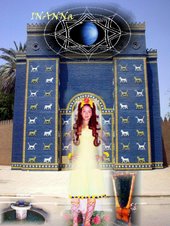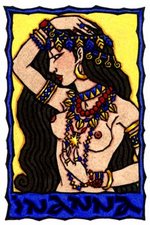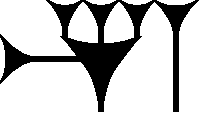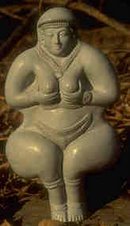Mesopotamian mythology is the collective name given to Sumerian, Akkadian, Assyrian, and Babylonian mythologies from the land between the Tigris and Euphrates rivers in Iraq.
The Sumerians practiced a polytheistic religion, with anthropomorphic gods or goddesses representing forces or presences in the world, in much the same way as later Greek mythology. According to said mythology, the gods originally created humans as servants for themselves but freed them when they became too much to handle.
Many stories in Sumerian religion appear similar to stories in other Middle-Eastern religions. For example, the Biblical account of the creation of man as well as Noah's flood resemble the Sumerian tales very closely, though the Sumerian myths were written many centuries earlier than the Tanakh (Old Testament). Gods and Goddesses from Sumer have distinctly similar representations in the religions of the Akkadians, Caananites, and others. A number of stories and deities have Greek parallels as well; for example, it has been argued by some that Inanna's descent into the underworld strikingly recalls (and predates) the story of Persephone.
The posting of this information was assisted by Wikipedia.
Wednesday, February 28, 2007
Subscribe to:
Post Comments (Atom)













No comments:
Post a Comment